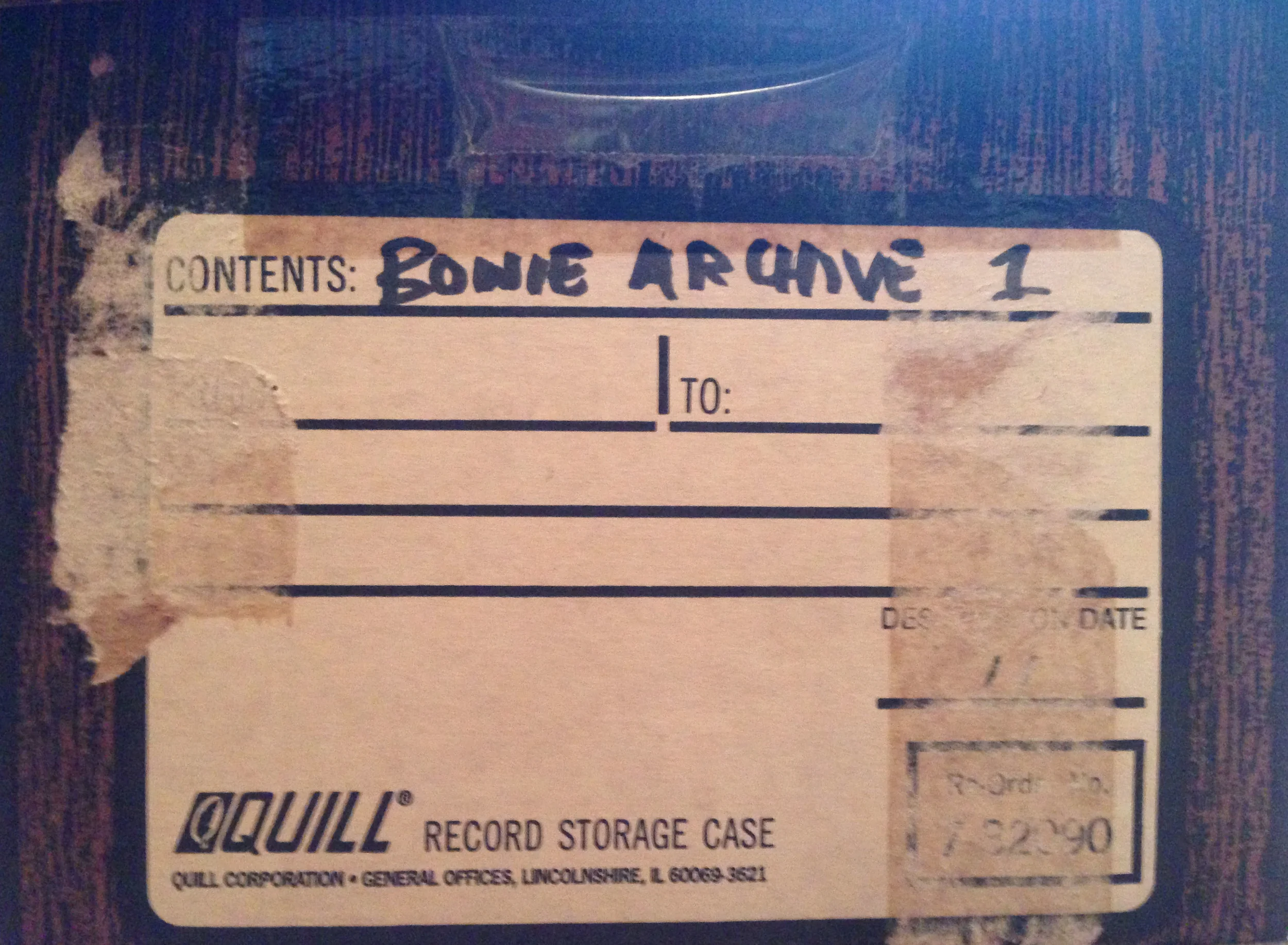One of the main reasons I decided to start this blog was to counter many erroneous assumptions that have accumulated about the Sound + Vision series over the years. There are many places online (Wikipedia, Amazon reviews, fan sites and even old press) where writers presume to have understood what exactly was inside Bowie's & my head when the series was put together, when in fact, they do not.
Much of the misinformation revolves around the "Sound + Vision" boxed set that launched the campaign in September 1989, nearly 25 years ago.
First iteration of the S+V box. Three CDs, a CDV (what?) and a 64 page booklet, written by Kurt Loder. He delivered the copy VERY late and nearly blew the street date.
I'll recount the assembly of the box (and subsequent series) here in depth. But first, please consider 1989, and within that, the context of Bowie and his catalog.
Bowie himself had just been through some weird years that started with the end of the seventies; he killed off Major Tom and seemingly abandoned (at least for a while) his chameleonic quality; becoming "Regular Bowie" in the process. It speaks to Bowie's groundbreaking seventies output that becoming "Regular" was seen as an oddity.
Signing to a new, UK-based label that understood his worldwide commercial potential, he hit critical mass in the USA and became a megastar with "Let's Dance" and the Serious Moonlight Tour, but after 1985, things started to go off the rails a bit. He devoted more time to acting, and did some songs for films, but, for the first time, it seemed like culture might be leading Bowie, not the other way around.
At the point he & Rykodisc first connected, it felt like the decade was going out for him on a low note. Bowie was recovering from "Never Let Me Down," an album that everyone seemed to agree had perhaps started as a good idea, but ended up being an albatross. It hasn't had a real hit single in many markets and MTV hadn't embraced the videos the way they'd done on the first two EMI records. He'd also been engaged to one of the tour's backup dancers, and that had ended (by some accounts, badly).
At one of our first meetings, Bowie gleefully recalled the end of the Glass Spider tour, burning the titular prop in a field in Australia or New Zealand. To hear him tell it, burning that fucker was a symbolic, near-spiritual exorcism of everything that had gotten out of control - chasing hits, expensive, extravagant (and long!) tours that were over-propped and choreographed to the point that the music lost impact.
DIALING IT IN: Even one of the coolest men who ever walked the earth sometimes looks a bit of a douche. Mullet hidden out of respect for the lost.
Bowie's reputation as a shrewd and self-aware artist is well-deserved. He was very excited by the (at this time, yet to be announced) back-to-basics Tin Machine record and stripped-down 4-piece rock band of which he was "just another member."
While clearly ready to put the recent past behind him, the era before loomed large in his vision. Bowie and his former manager, Tony DeFries, had just gotten back the rights to his RCA era records. Placing them at the right label would not only generate significant income for them, but give Bowie an opportunity to remind old fans of his brilliance and to be seen with fresh eyes by new ones.
(End Part One)


